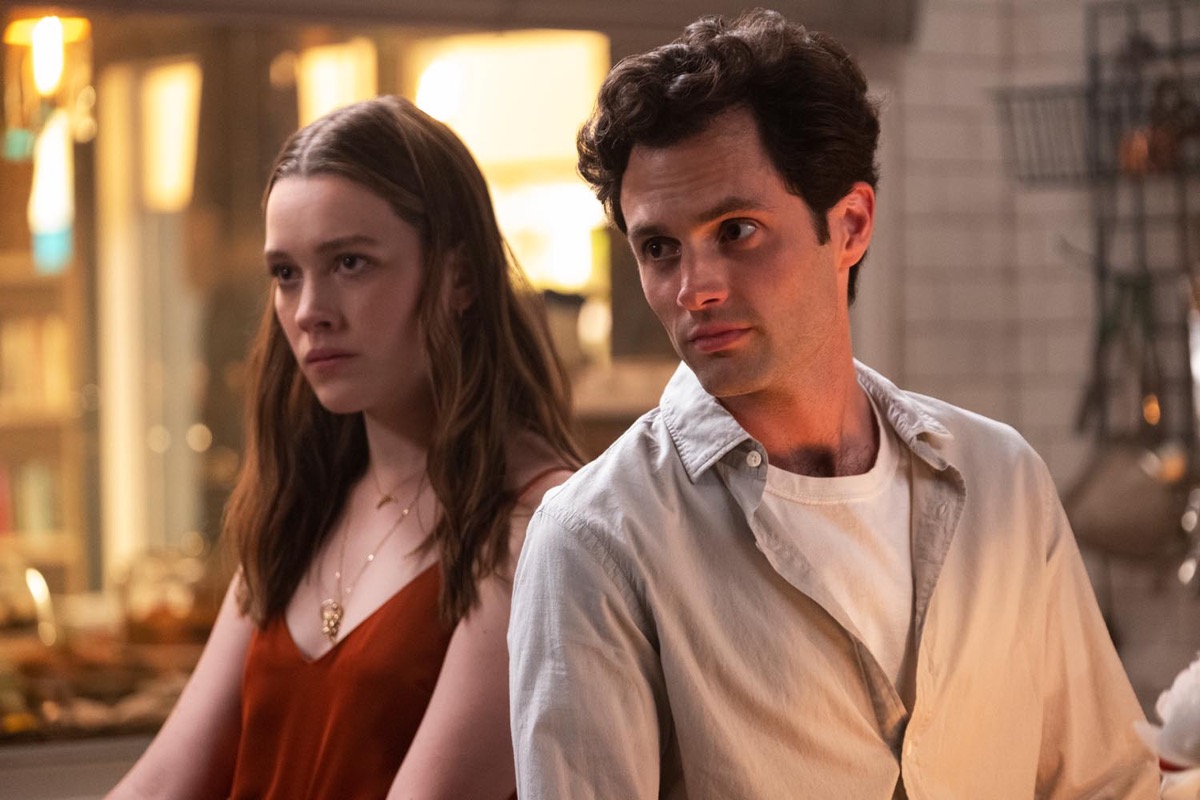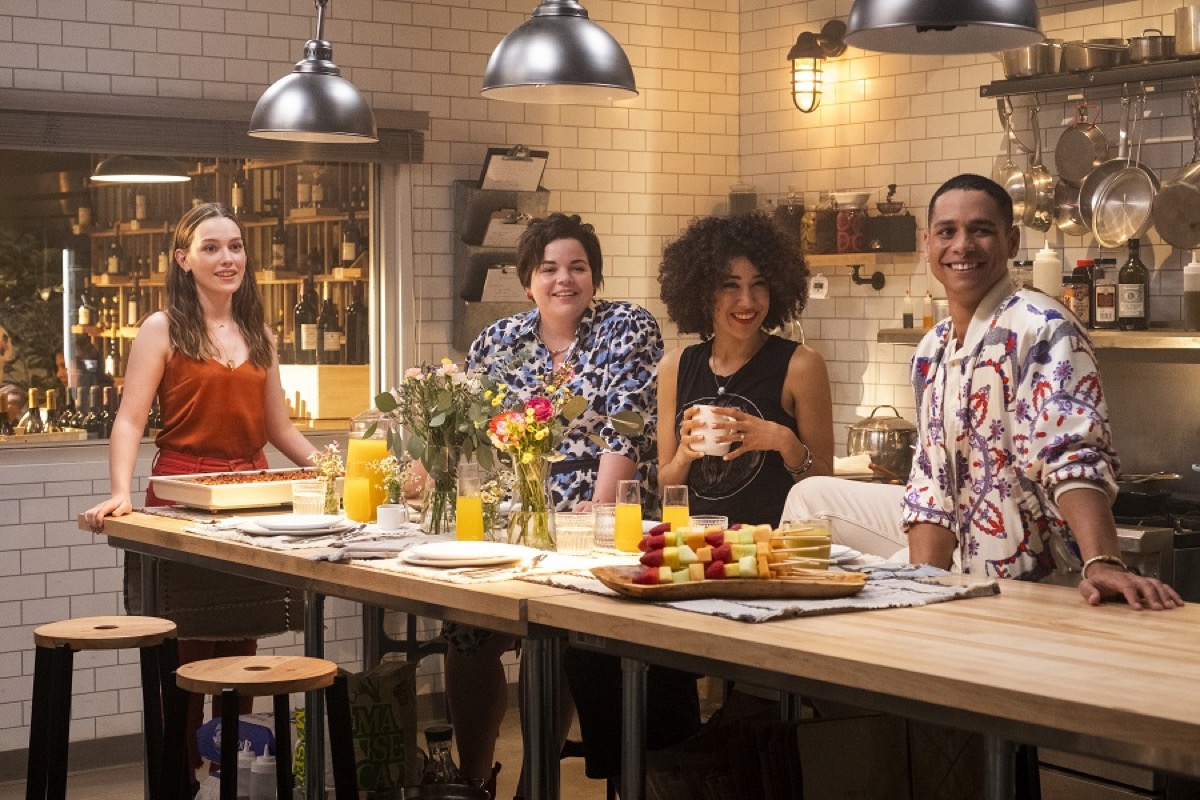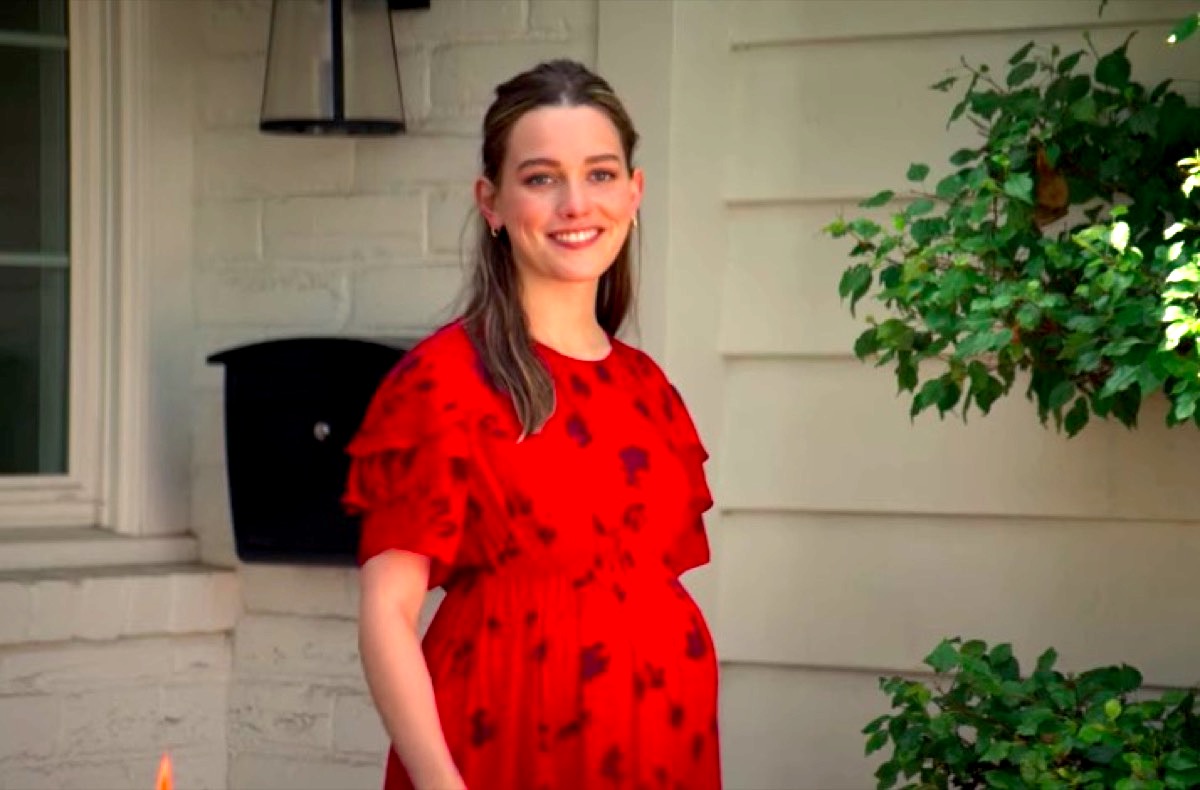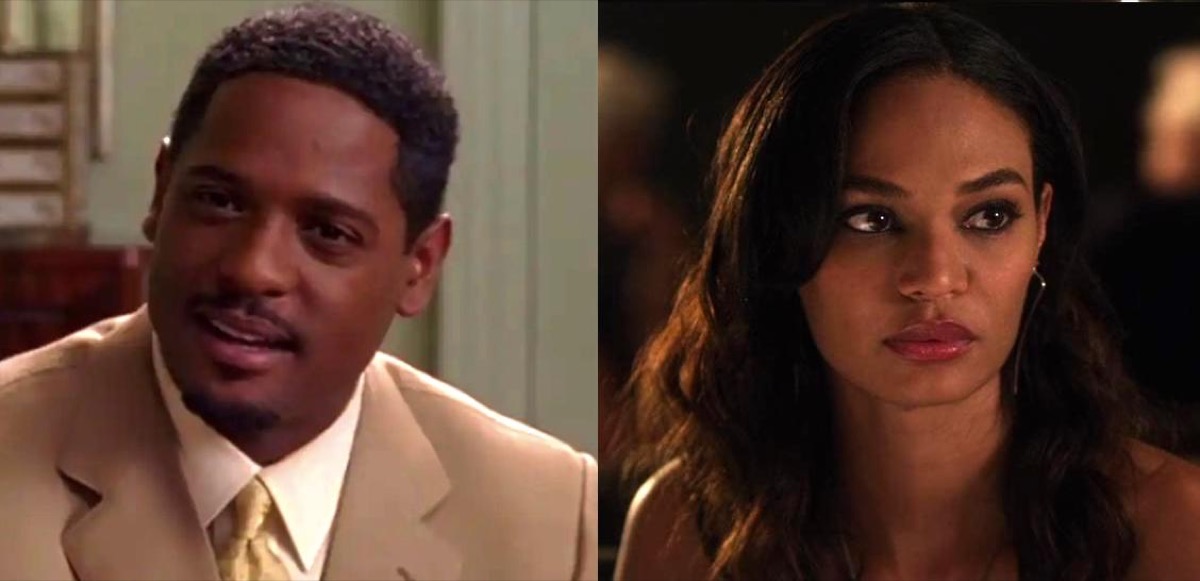**Spoilers for You seasons one and two.**
Netflix’s You is not subtle in its messaging. Set in the mind of gallant sociopath Joe Goldberg, it tells the story of a romantic comedy gone wrong, featuring a leading man so thoroughly imbued with the societal pressure to rescue damsels in distress that he ends up hurting them.
I found the first season enthralling, but reductive. It was telling me, as a woman, something I already know about myself and how I have been conditioned by society: “It’s not actually romantic for a guy to hold a boombox under your window or break up your wedding.” The show seems to be saying, “That kind of behavior is toxic, and the fact that you think it’s romantic is fucked up.”
Guinevere Beck, the object of Joe’s affection, is punished for this mistake. She dies in a soundproof box in the basement of his bookstore, and that’s that: a classic cautionary tale.
The second season, to its credit, complicates the narrative, whispering something new in my ear that forces me to question my predilections and romantic fantasies. Joe’s lust for Love Quinn, the mysterious young widow, serves just fine as a critique of gender norms. It serves even better as a searing commentary on the social advancement, merging of assets, and white solidarity inherent in the structure of the romantic comedy.
To understand what the second season of You accomplishes, we first need to understand its leading lady, Love Quinn. Unlike the passive Beck, defined by her ambivalence and unattainability, Love could be the protagonist of her own romantic comedy; she’s a warm-hearted chef, just getting over the death of her husband, complete with a set of black and brown LGBTQ friends, all seemingly more interested in her romantic endeavors than their own.
Her seduction of Joe centers around a whimsical quest to find his “perfect bite”—the one food that will make him fall in love with Los Angeles, and in love with her. Love’s wealth and class privilege manifest in their invisibility. We never question how she has the time to drop in on Joe and sweep him away, or the money to patronize at least five or six different Los Angeles food trucks in one night, just so he can sample one bite of every confection.
The sequence ends, in classic Nancy Meyers fashion, with Love making Joe a chicken dinner in a spotless, stainless-steel kitchen. To the show’s credit, it deconstructs this fantasy and acknowledges Love’s wealth. Joe will later discover that she doesn’t just work at the organic food store where he has recently found employment, but that her family owns it. The whimsy and mobility that have entranced him are backed by a trust fund.
Unlike Beck, a climber seeking to embody the appearance of wealth and constantly failing, Love provides the possibility of social advancement for Joe. At a hippie-dippy weekend retreat led by Love’s parents, characters step into a circle to will their intentions into being.
“Is this gonna work?” Joe asks Love’s friend Lucy under his breath. “Cause my car is really old.”
“Yeah, that shiny Prius is all yours,” she replies. “All you need is a group hug and 35k.”
In the last scene of the season finale, Joe pulls into the driveway in said shiny Prius, takes his reusable grocery bags from the trunk, and waves back to Love, his now-pregnant wife, standing on the steps of their sizable suburban ranch. Joe can complain as much as he wants about rich people, but ultimately, he has become one of them. He has married up.
Of course, Joe and Love’s domestic fantasy comes at a cost, but neither character pays it. Delilah, the Latinx gossip columnist who serves as Joe’s rebound from Love, bears the brunt of their crimes. When Delilah discovers that Joe is a serial killer, Love murders her without a second thought. Delilah’s little sister, Ellie, ends up on the lam. The advancement of the white, heteronormative, wealthy family—Joe, Love, and their child—becomes the priority.
This narrative mirrors a less hyperbolic, but still potent pattern in romantic comedies. Most romcoms worth their salt feature a “disposable fiancé,” a character more outwardly composed and conventional than the protagonists, who we know that no one is going to end up with at the end of the film.
Not always, but often, these characters are played by people of color. Joan Smalls plays the impenetrable model Suze in Set It Up, who is abandoned for the warm, relatable, and incredibly white Harper, played by Zoe Deutch. In perhaps one of the most frustrating resolutions to a love triangle in all of television, Sex and the City’s Miranda Hobbs chooses schlubby Steve over suave sports doctor Robert, who is played by Blair frikkin’ Underwood.
Miranda’s choice is framed as fate—she has a child with Steve. They share a special connection that somehow makes him “the one.” This connection inspires her to break up with Robert, get back together with Steve, and make a home for her family, incidentally becoming one of the first gentrifiers in Brooklyn.
As charming as Harper and Steve are, the choices that these protagonists make are not just about love or “the one.” Subliminally, they are choosing the partner who will increase rather than detract from their social standing, at the expense of black and brown characters. Neither Suze nor Robert end up dead, obviously, but they die as much as anyone can in a romcom, falling off the map of the narrative and losing any chance of a quirky romance with the protagonists.
In You, Love, the relatable, adorably flawed romcom protagonist, murders Delilah to ensure the socioeconomic advancement of her new, white family. The show makes a conscious decision to juxtapose Love’s cold-blooded murder of Delilah with a stunning lack of consequences. This narrative understands and emphasizes the fact that Love should be punished for her actions, “But why would she be?” it asks us. “She’s enforcing the status quo.”
You’s alignment of the viewer with Joe, and now with Love, forces her to question what the narrative of the romantic comedy genre is ultimately asking her to root for. The first season protects us from this question—Joe is the only murderer, and though instrumental to his success as a killer, his whiteness is not centered. By also making Love a murderer, the show implicates the white female romcom role in the genre’s faults, right along with the male one.
By the end of the series, one could read Love as a distant, goyishe cousin of Crazy Ex Girlfriend’s Rebecca Bunch. Both women believe in the conceit of “fate” presented in romantic comedies, to the detriment of everyone around them. The insidiousness of these narratives lies in their dependence on “coincidence” and “serendipity”—the characters just happen to meet people who are “perfect” for them, not only because they have good rapport, but because they match in terms of race and socioeconomic background.
More often than not, these characters get married and find success within the capitalist system at the same time. In You’ve Got Mail, Meg Ryan gives up her fight against Tom Hanks’ chain bookstore because she falls in love with him. In Working Girl, Melanie Griffith moves from Staten Island to a swanky Manhattan apartment, becoming one half of an ’80s power couple with Harrison Ford.
These films, two of my favorites, equate finding your soulmate with the merging of assets. The characters become part of a unit that is, in turn, part of a larger, patriarchal, capitalist system. Rebecca and Love are not victims to this system any more than Joe—they willfully participate in it and catapult their narratives forward, regardless of the consequences.
To quote another iconic beneficiary of capitalism, Carrie Bradshaw, “I couldn’t help but wonder,” what would romcoms look like without the painstakingly thought-out marriage plot, which more often than not implicates its viewers in misogyny, consumerism, and racism? I don’t have an answer to this question. You, a show that now centers around two sociopaths maintaining the status quo, doesn’t have one, either.
Personally, though, I think we should continue to question the universe of the romcom: our gorgeous, quirky protagonist. Her frequent run-ins with a wry, handsome stranger. The forces that allow them to run into each other in a bookstore, that afford them the time to take long, leisurely walks in New York City in the fall or bake flawless chocolate croissants in the middle of the night. The moment they decide that they are meant for each other.
Like Love Quinn herself, the genre can be warm, smart, and beautiful. Also like Love Quinn, it has a shit-ton of ulterior motives.
(featured image: Beth Dubber/Netflix)
Want more stories like this? Become a subscriber and support the site!
—The Mary Sue has a strict comment policy that forbids, but is not limited to, personal insults toward anyone, hate speech, and trolling.—












Published: Jun 11, 2020 1:55 PM UTC